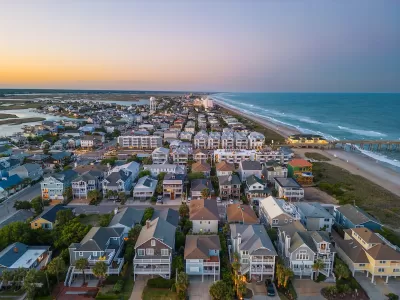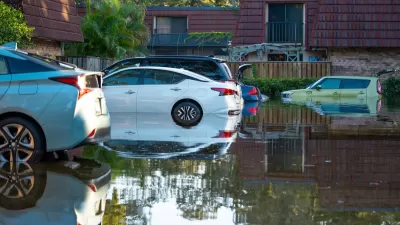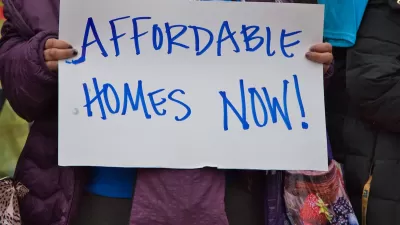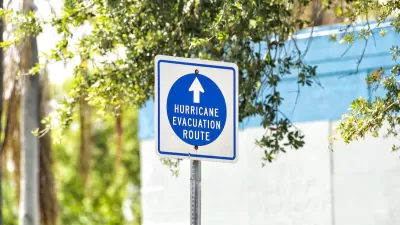Spiking insurance costs in coastal areas prone to climate disasters are making it harder for low-income housing developers to keep building.

Extreme weather driven by climate change is making it increasingly difficult to build affordable housing, reports Kelly Kenoyer in a piece for WHQR. This is largely because insurance companies are hiking premiums or refusing to cover regions prone to natural disasters.
According to one North Carolina affordable housing developer, premiums have gone up by as much as 70 percent. “Coastal North Carolina is a major retirement hub: The two fastest growing counties in the state, Pender and Brunswick, are next door to New Hanover County, and much of that growth is from retirees. Many of those moving have higher incomes than local residents, which helps drive up market-rate rents: and pushes some locals out of their homes, unless they can find subsidized apartments.”
As Kenoyer explains, “That chilling effect hits tax credit developers more than for-profit developers. After all: market rate developers can just increase rents to cover the rising tides of insurance.” Meanwhile, retirees from around the United States continue to move to disaster-prone areas, keeping demand for housing in coastal areas high.
The article notes that the federal government could ease the burden on affordable housing developers by standardizing requirements for the various housing programs used by low-income housing builders and incentivizing building climate-resilient properties.
FULL STORY: Climate-driven insurance hikes are making affordable housing even harder to build

Study: Maui’s Plan to Convert Vacation Rentals to Long-Term Housing Could Cause Nearly $1 Billion Economic Loss
The plan would reduce visitor accommodation by 25,% resulting in 1,900 jobs lost.

North Texas Transit Leaders Tout Benefits of TOD for Growing Region
At a summit focused on transit-oriented development, policymakers discussed how North Texas’ expanded light rail system can serve as a tool for economic growth.

Using Old Oil and Gas Wells for Green Energy Storage
Penn State researchers have found that repurposing abandoned oil and gas wells for geothermal-assisted compressed-air energy storage can boost efficiency, reduce environmental risks, and support clean energy and job transitions.

Santa Barbara Could Build Housing on County Land
County supervisors moved forward a proposal to build workforce housing on two county-owned parcels.

San Mateo Formally Opposes Freeway Project
The city council will send a letter to Caltrans urging the agency to reconsider a plan to expand the 101 through the city of San Mateo.

A Bronx Community Fights to Have its Voice Heard
After organizing and giving input for decades, the community around the Kingsbridge Armory might actually see it redeveloped — and they want to continue to have a say in how it goes.
Urban Design for Planners 1: Software Tools
This six-course series explores essential urban design concepts using open source software and equips planners with the tools they need to participate fully in the urban design process.
Planning for Universal Design
Learn the tools for implementing Universal Design in planning regulations.
Ascent Environmental
Borough of Carlisle
Institute for Housing and Urban Development Studies (IHS)
City of Grandview
Harvard GSD Executive Education
Toledo-Lucas County Plan Commissions
Salt Lake City
NYU Wagner Graduate School of Public Service





























